
Ubud: The Cultural Heart of Bali
Nestled in the uplands of Bali, Ubud is a treasure trove of traditional crafts, ancient temples, and stunning natural beauty. As the cultural heart of Bali, Ubud offers a serene escape from the island's bustling beach resorts. Here, you can immerse yourself in the island's rich heritage and tranquil landscapes. Begin your journey at the Sacred Monkey Forest Sanctuary, where you can wander through lush greenery and encounter playful monkeys, all while exploring ancient temple ruins. For art enthusiasts, Ubud is a haven, with numerous galleries and museums showcasing traditional and contemporary Balinese art. Don't miss the Agung Rai Museum of Art (ARMA) or the Neka Art Museum for a deep dive into the island's artistic traditions. Ubud is also known for its vibrant markets, where you can find everything from handcrafted jewelry to organic produce. The Ubud Market is a must-visit for a taste of local life and unique souvenirs. Foodies will delight in Ubud's culinary scene, which ranges from traditional warungs (small family-owned restaurants) to upscale dining experiences. Be sure to try a traditional Balinese meal, with dishes like Babi Guling (suckling pig) and Bebek Betutu (slow-cooked duck). Nature lovers will find plenty to explore, from the iconic Tegalalang Rice Terraces to the scenic Campuhan Ridge Walk. Ubud's wellness scene is also renowned, with numerous yoga studios and holistic spas offering a range of treatments to rejuvenate your body and soul. With its blend of culture, art, nature, and wellness, Ubud offers a unique and enriching experience for every traveler.
Local tips in Ubud
- Visit the Sacred Monkey Forest Sanctuary early in the morning to avoid crowds and enjoy a peaceful experience.
- Hire a local guide for a more informative visit to the Tegalalang Rice Terraces and to learn about traditional farming methods.
- Check out the Ubud Market early in the morning for the best deals and freshest produce.
- Book your wellness treatments in advance, especially during peak tourist season, to ensure availability.
- Be respectful of local customs and dress modestly when visiting temples.
Ubud: The Cultural Heart of Bali
Nestled in the uplands of Bali, Ubud is a treasure trove of traditional crafts, ancient temples, and stunning natural beauty. As the cultural heart of Bali, Ubud offers a serene escape from the island's bustling beach resorts. Here, you can immerse yourself in the island's rich heritage and tranquil landscapes. Begin your journey at the Sacred Monkey Forest Sanctuary, where you can wander through lush greenery and encounter playful monkeys, all while exploring ancient temple ruins. For art enthusiasts, Ubud is a haven, with numerous galleries and museums showcasing traditional and contemporary Balinese art. Don't miss the Agung Rai Museum of Art (ARMA) or the Neka Art Museum for a deep dive into the island's artistic traditions. Ubud is also known for its vibrant markets, where you can find everything from handcrafted jewelry to organic produce. The Ubud Market is a must-visit for a taste of local life and unique souvenirs. Foodies will delight in Ubud's culinary scene, which ranges from traditional warungs (small family-owned restaurants) to upscale dining experiences. Be sure to try a traditional Balinese meal, with dishes like Babi Guling (suckling pig) and Bebek Betutu (slow-cooked duck). Nature lovers will find plenty to explore, from the iconic Tegalalang Rice Terraces to the scenic Campuhan Ridge Walk. Ubud's wellness scene is also renowned, with numerous yoga studios and holistic spas offering a range of treatments to rejuvenate your body and soul. With its blend of culture, art, nature, and wellness, Ubud offers a unique and enriching experience for every traveler.
Iconic landmarks you can’t miss
Sacred Monkey Forest Sanctuary
Explore the enchanting Sacred Monkey Forest Sanctuary in Ubud, where nature meets cultural heritage, and playful monkeys roam free.
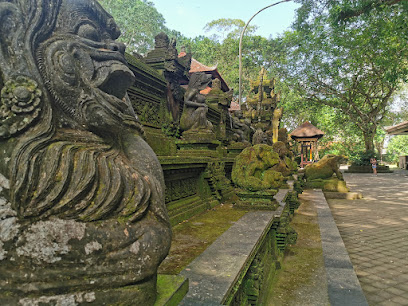
Campuhan Ridge Walk
Experience nature's beauty at Campuhan Ridge Walk, a serene hiking trail in Ubud, Bali, offering breathtaking views and cultural encounters.
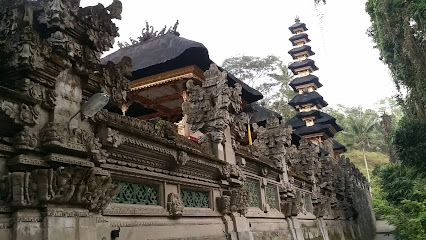
Ubud Palace
Explore Ubud Palace, a cultural gem in Bali, showcasing stunning architecture, royal heritage, and vibrant traditional performances.
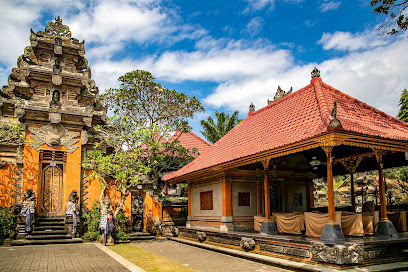
Pura Taman Kemuda Saraswati
Discover the captivating beauty and cultural significance of Pura Taman Kemuda Saraswati, a must-see Hindu temple in Ubud, Bali.
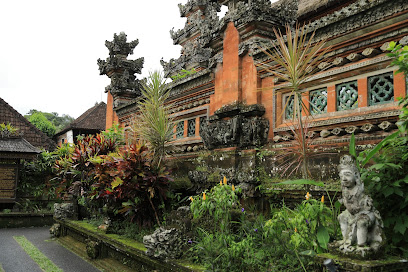
Museum Puri Lukisan
Discover the rich tapestry of Balinese art and culture at Museum Puri Lukisan, a serene haven for art lovers in Ubud, Bali.

Kajeng Rice Field
Explore the enchanting Kajeng Rice Fields in Ubud, Bali, where lush landscapes and cultural heritage blend for a serene escape into nature's beauty.
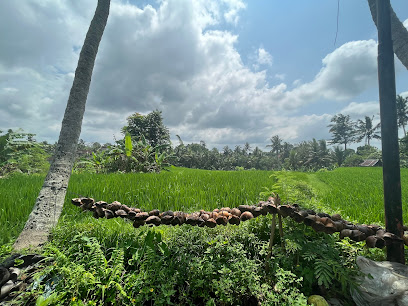
Ubud Water Palace
Discover the serene Ubud Water Palace, a captivating Hindu temple in Bali surrounded by lush gardens and tranquil ponds, perfect for cultural exploration.
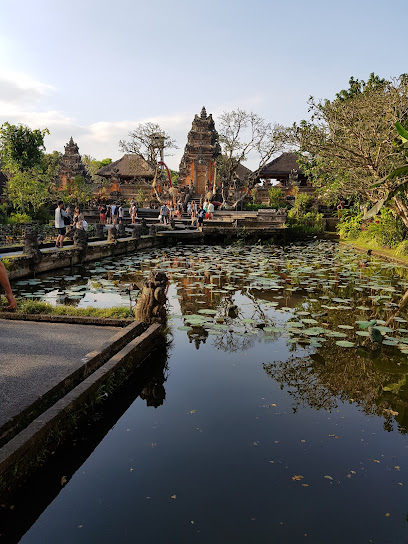
Pura Dalem Ubud
Explore the tranquil Pura Dalem Ubud, a sacred Hindu temple in Bali, where spirituality and stunning architecture come together in a serene landscape.
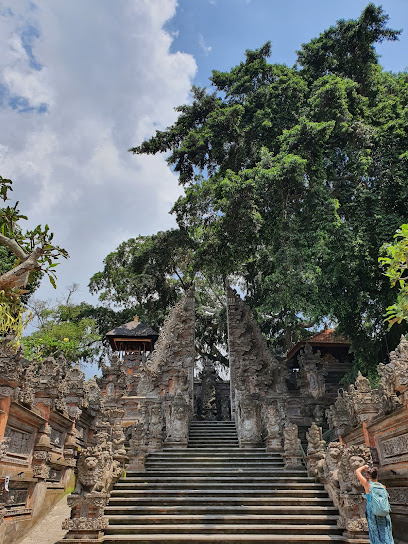
Pura Dalem Agung Padangtegal
Explore the serene beauty and cultural richness of Pura Dalem Agung Padangtegal, a sacred Hindu temple in the heart of Ubud, Bali.
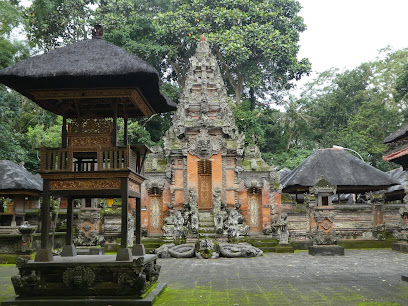
Tjampuhan Old Bridge
Discover the charm of Tjampuhan Old Bridge in Ubud, Bali, a historical landmark offering stunning views and a glimpse into the island's rich cultural heritage.
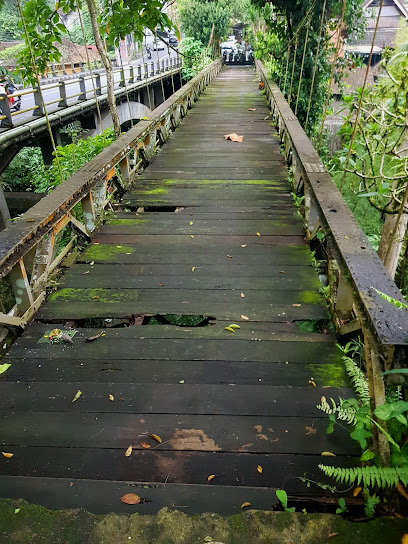
Unmissable attractions to see
Sacred Monkey Forest Sanctuary
Explore the Sacred Monkey Forest Sanctuary in Ubud, Bali, where playful monkeys and ancient temples come together in a captivating natural paradise.
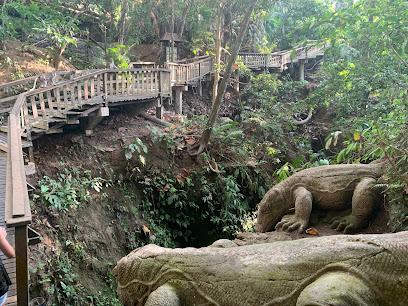
Campuhan Ridge Walk
Experience the enchanting Campuhan Ridge Walk in Ubud, Bali, where lush landscapes and serene views await every traveler.
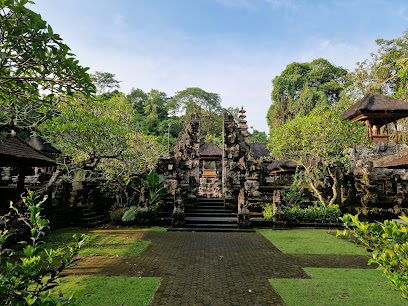
Ubud Palace
Explore the rich cultural heritage and stunning architecture of Ubud Palace, a historical landmark in the heart of Bali.
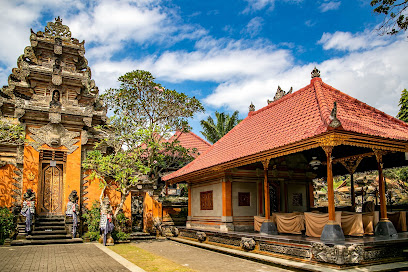
Pura Taman Kemuda Saraswati
Discover the serene beauty of Pura Taman Kemuda Saraswati, a stunning Hindu temple in Ubud, Bali, featuring intricate architecture and tranquil lotus ponds.
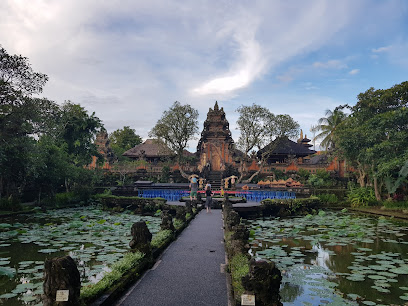
Museum Puri Lukisan
Explore the treasures of Balinese art at Museum Puri Lukisan, the oldest museum in Bali, showcasing a rich collection of traditional and contemporary masterpieces.
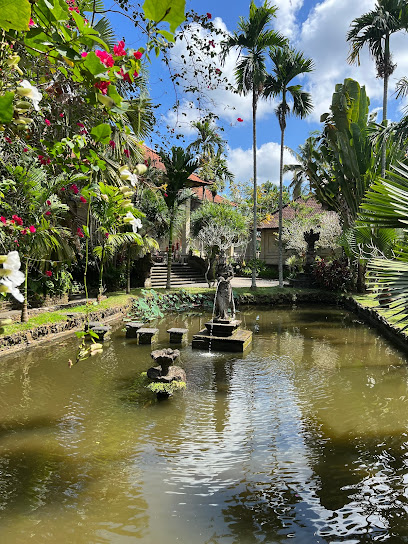
Agung Rai Museum of Art
Discover the heart of Balinese culture at Agung Rai Museum of Art, a premier destination for art lovers and cultural enthusiasts in Ubud.
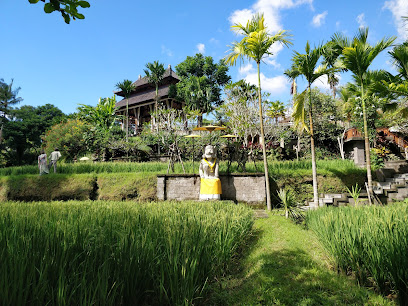
Kajeng Rice Field
Explore the serene Kajeng Rice Fields in Ubud, Bali, where lush landscapes and traditional farming practices beckon travelers to unwind and connect with nature.
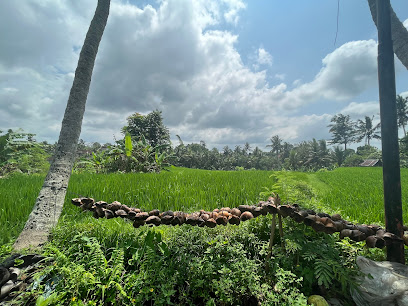
Ubud Water Palace
Discover the tranquility and cultural richness of Ubud Water Palace, a serene oasis of beauty and heritage in Bali's lush landscape.
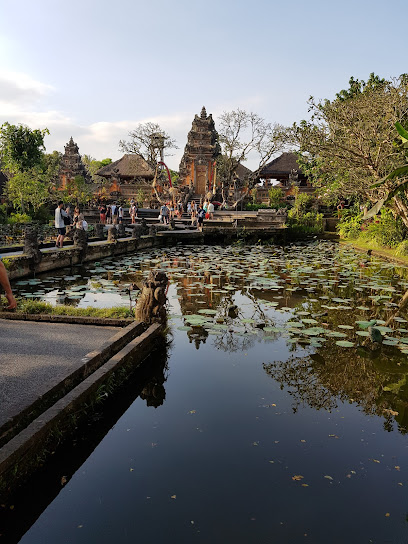
Petulu Heron Bird Colony Watch Point
Experience the magical spectacle of the Petulu Heron Bird Colony in Ubud, Bali, where nature and beauty converge at sunset.
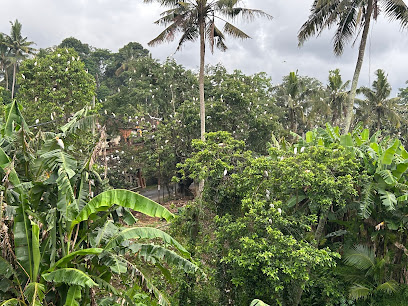
Puri Agung Peliatan
Explore the enchanting Puri Agung Peliatan, a royal palace in Ubud, Bali, and immerse yourself in rich culture and stunning architecture.
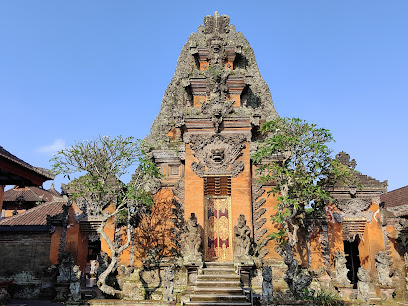
Essential places to dine
Watercress Ubud
Experience fresh organic cuisine at Watercress Ubud - where every meal celebrates the essence of Bali's vibrant culinary scene.
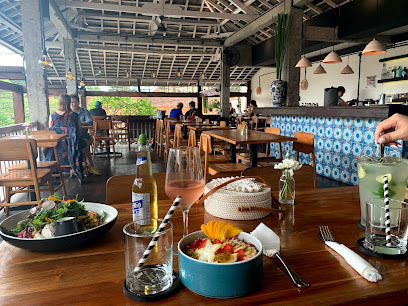
Sweet Orange Warung
Experience authentic Indonesian cuisine at Sweet Orange Warung in Ubud - a paradise for food lovers with delicious vegetarian options.
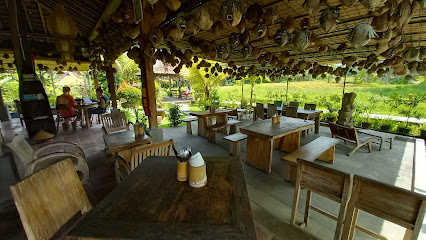
Hujan Locale: Modern Indonesian Restaurant
Discover the exquisite blend of modern Indonesian flavors at Hujan Locale, Ubud's premier dining destination for food enthusiasts.
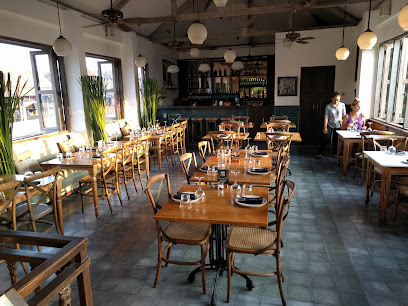
Pica South American Kitchen
Discover authentic Peruvian flavors blended with American influences at Pica South American Kitchen in Ubud, Bali.
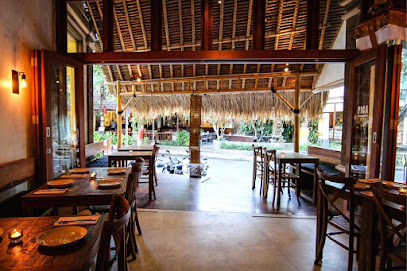
Honey & Smoke: Open Fire Bistro
Experience the essence of Balinese cuisine at Honey & Smoke: Ubud's premier open-fire bistro offering exquisite grilled dishes and handcrafted cocktails.
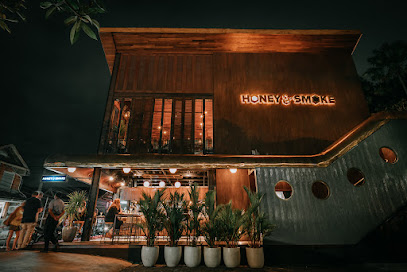
Miro's Garden Restaurant
Experience authentic Balinese cuisine in a serene garden setting at Miro's Garden Restaurant in Ubud.
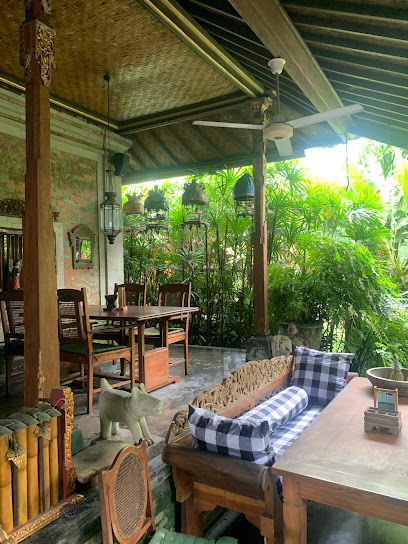
Portofino Ubud
Experience authentic Italian cuisine surrounded by the serene beauty of Ubud at Portofino Ubud.
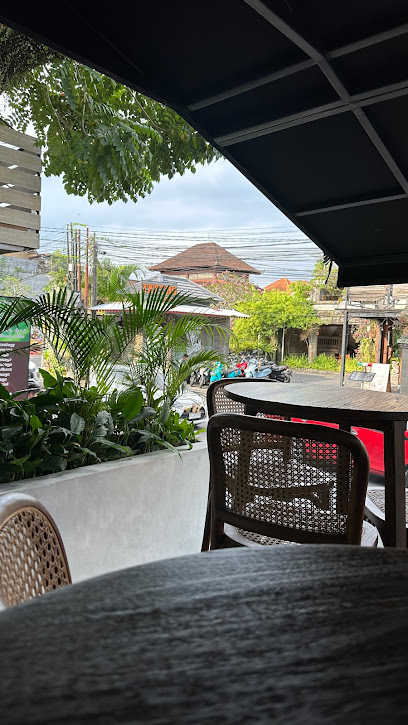
PASIR Restaurant
Discover exquisite Balinese flavors at PASIR Restaurant in Ubud – where every dish tells a story.
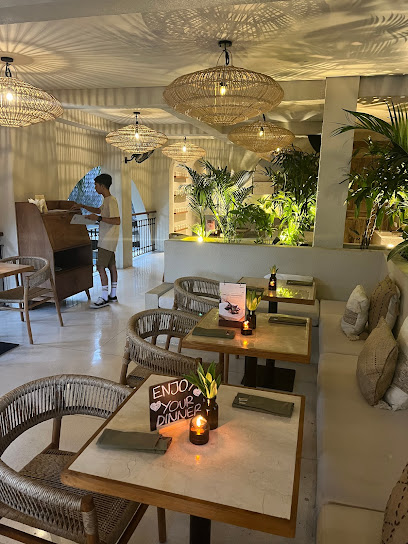
Terracotta Restaurant Ubud
Experience authentic Balinese flavors at Terracotta Restaurant Ubud - where fresh ingredients meet stunning surroundings.
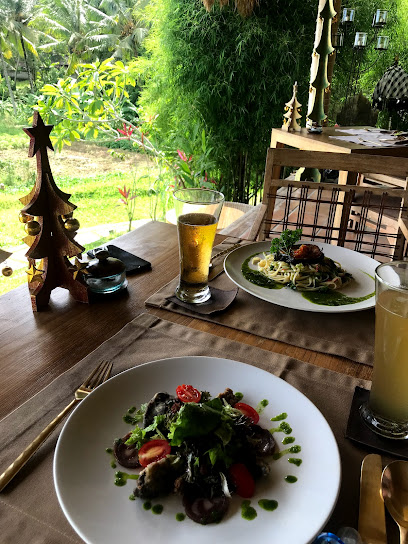
Wanara Spice
Experience a culinary journey through Balinese traditions at Wanara Spice in Ubud - where every dish tells a story.
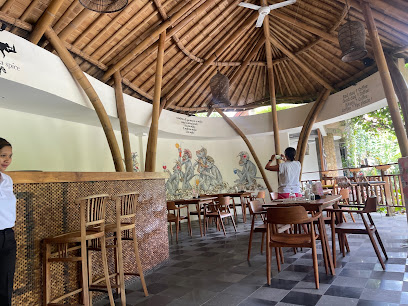
Markets, malls and hidden boutiques
Threads of Life Store
Discover authentic Balinese handicrafts at Threads of Life, where every purchase tells a story of tradition and sustainability.
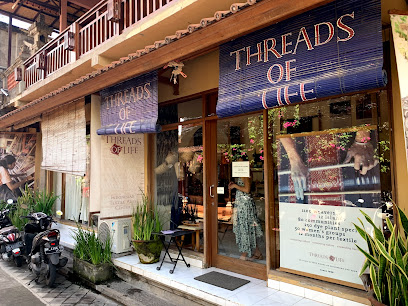
Uluwatu Handmade Balinese Lace - Ubud
Explore exquisite handcrafted lace at Uluwatu Handmade Balinese Lace in Ubud, a unique shopping experience in Bali's artistic heart.
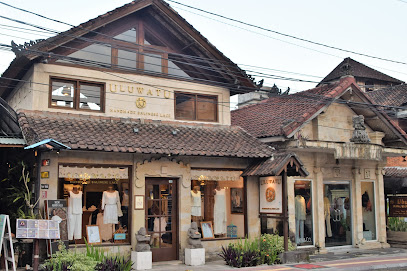
BIASA Ubud
Discover the essence of Balinese craftsmanship at BIASA Ubud, a boutique showcasing unique fashion and lifestyle products that celebrate local artistry.
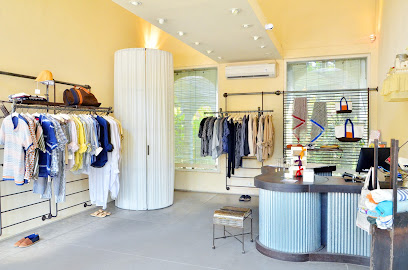
Erika Pena Boutique Ubud
Explore the enchanting Erika Pena Boutique in Ubud, where fashion meets the spirit of Bali with exquisite designs and personalized service.
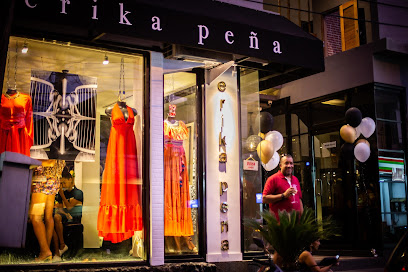
Von Dutch Store Ubud
Explore unique fashion at Von Dutch Store Ubud, where urban chic meets vintage style in the heart of Bali's artistic hub.
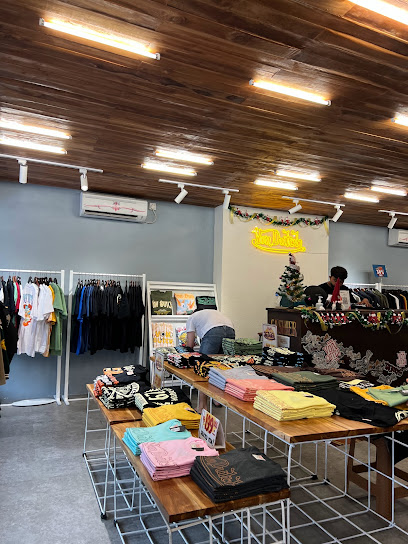
ZenAura Boutique Bali
Explore ZenAura Boutique Bali, a charming gift shop in Ubud offering unique souvenirs and stylish apparel reflecting the vibrant Balinese culture.
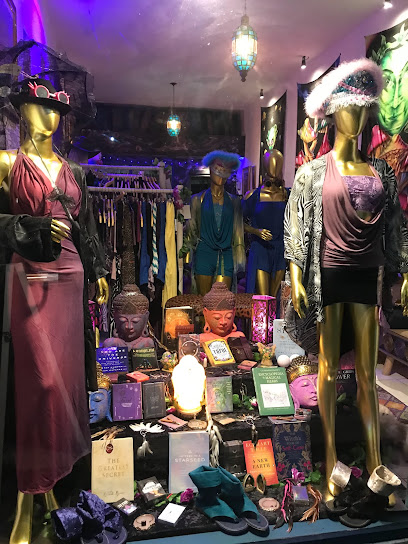
The Crystal Boutique
Discover unique treasures at The Crystal Boutique in Ubud, a charming gift shop featuring exquisite jewelry and handcrafted home goods.
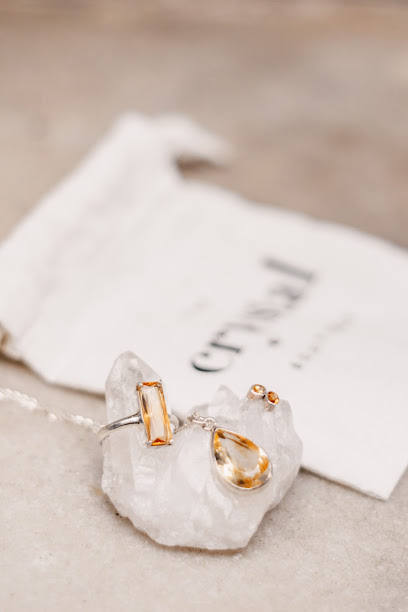
Warji shop
Explore Warji Shop in Ubud, Bali – a treasure trove of antiques reflecting the rich heritage and artistry of the island.
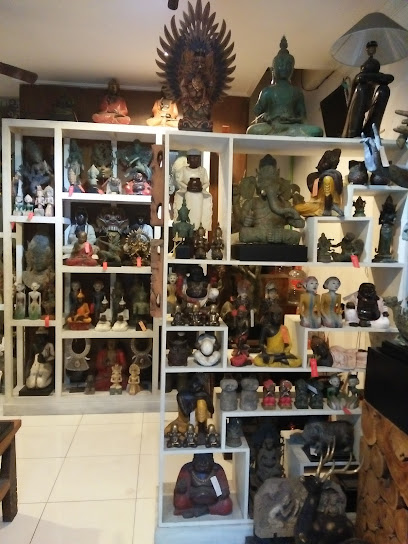
newearth by Ashamaya (Ubud )
Explore the essence of Balinese fashion at Newearth by Ashamaya, a unique clothing store in Ubud offering sustainable and artful designs.
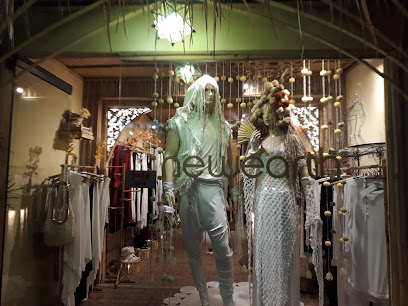
NATASHIA INDONESIAN AUTHENTIC ART
Explore the vibrant world of authentic Indonesian art and crafts at NATASHIA in Ubud, Bali - a treasure trove for unique souvenirs.
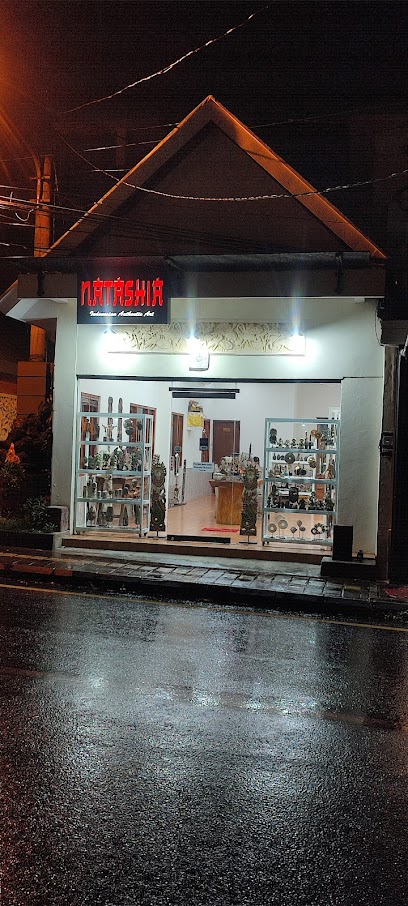
Essential bars & hidden hideouts
CP Lounge Ubud
Experience the vibrant nightlife and diverse atmosphere at CP Lounge Ubud, where cocktails, live music, and relaxation meet in the heart of Bali.
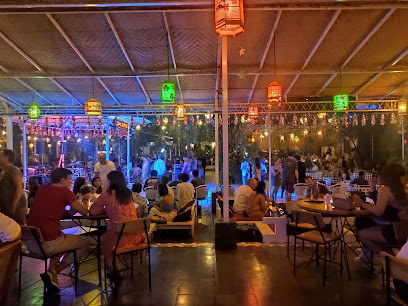
Laughing Buddha Bar
Discover the vibrant ambiance and delicious grill cuisine at Laughing Buddha Bar, a must-visit destination in Ubud, Bali.
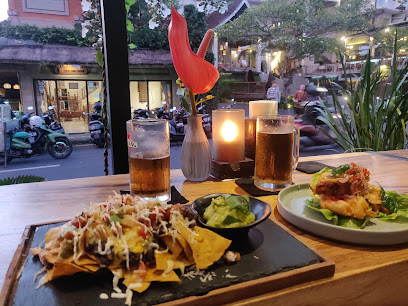
No Más Bar
Discover the vibrant nightlife at No Más Bar in Ubud, Bali, featuring live music, exquisite cocktails, and an unforgettable atmosphere.
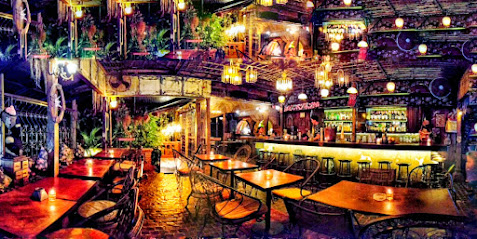
Why Not Restaurant and Bar
Discover the vibrant atmosphere and exquisite flavors at Why Not Restaurant and Bar in Ubud - a culinary gem for every tourist in Bali.
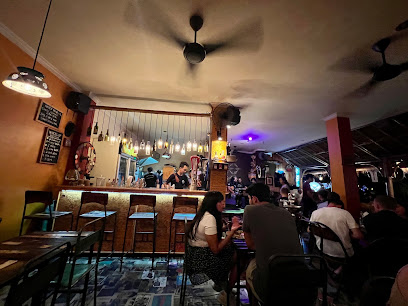
Divya Bar Ubud
Discover the vibrant atmosphere of Divya Bar Ubud, where exquisite cocktails and a cozy cafe vibe await your visit in the heart of Bali.
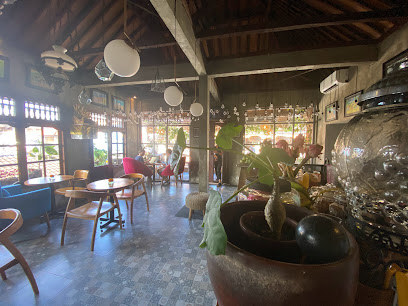
Belle Wine Bar & Grazing Boards
Discover the perfect blend of exquisite wines and gourmet tapas at Belle Wine Bar & Grazing Boards in Ubud, Bali.
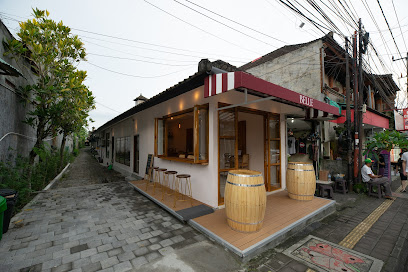
BACARI
Discover Bacari, a tranquil bar in Ubud, Bali, offering exquisite tapas and a diverse wine selection in a serene atmosphere.
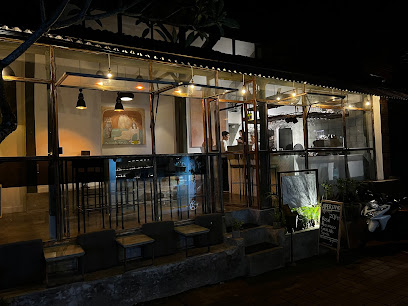
Lovin Bar & Restaurant
Discover the lively ambiance of Lovin Bar & Restaurant in Ubud, where delicious food and vibrant nightlife come together in a delightful experience.
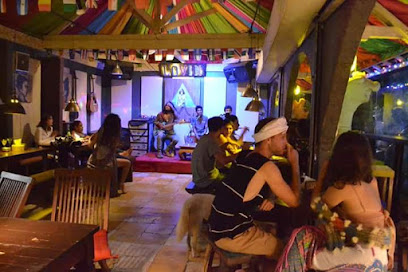
Night Rooster
Experience the lively atmosphere and exquisite cocktails at Night Rooster, a must-visit bar in the heart of Ubud, Bali.
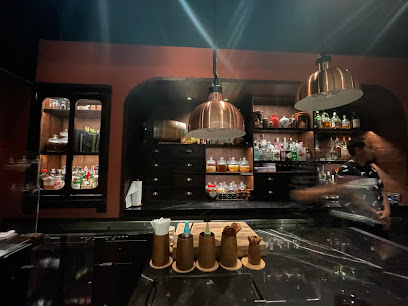
Nectar
Discover Nectar in Ubud, Bali: an enchanting bar offering innovative cocktails and a serene atmosphere amidst lush greenery.
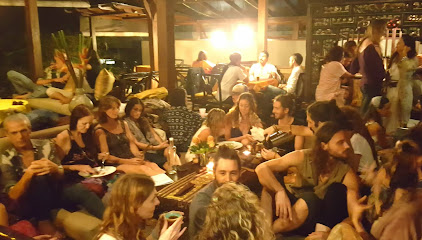
Local Phrases
-
- HelloHalo
[ha-loh] - GoodbyeSelamat tinggal
[se-la-mat ting-gal] - YesYa
[yah] - NoTidak
[tee-dak] - Please/You're welcomeSilakan
[see-la-kan] - Thank youTerima kasih
[te-ree-ma ka-see] - Excuse me/SorryMaaf
[mah-af] - How are you?Apa kabar?
[ah-pah ka-bar] - Fine. And you?Baik. Dan kamu?
[bah-ik. dan ka-moo] - Do you speak English?Bisa berbicara bahasa Inggris?
[bee-sa ber-bee-cha-ra ba-ha-sa ing-gris] - I don't understandSaya tidak mengerti
[sa-ya tee-dak men-ger-tee]
- HelloHalo
-
- I'd like to see the menu, pleaseSaya ingin melihat menu, tolong
[sa-ya in-gin me-li-hat me-nu, toh-long] - I don't eat meatSaya tidak makan daging
[sa-ya tee-dak ma-kan da-ying] - Cheers!Selamat minum!
[se-la-mat mi-num] - I would like to pay, pleaseSaya ingin membayar, tolong
[sa-ya in-gin mem-ba-yar, toh-long]
- I'd like to see the menu, pleaseSaya ingin melihat menu, tolong
-
- Help!Tolong!
[toh-long] - Go away!Pergi!
[per-gee] - Call the Police!Panggil polisi!
[pang-gil po-lee-see] - Call a doctor!Panggil dokter!
[pang-gil dok-ter] - I'm lostSaya tersesat
[sa-ya ter-se-sat] - I'm illSaya sakit
[sa-ya sa-kit]
- Help!Tolong!
-
- I'd like to buy...Saya ingin membeli...
[sa-ya in-gin mem-be-lee] - I'm just lookingSaya hanya melihat
[sa-ya han-ya me-li-hat] - How much is it?Berapa harganya?
[be-ra-pa har-gan-ya] - That's too expensiveItu terlalu mahal
[ee-too ter-la-lu ma-hal] - Can you lower the price?Bisa kurangi harganya?
[bee-sa kur-an-gee har-gan-ya]
- I'd like to buy...Saya ingin membeli...
-
- What time is it?Jam berapa sekarang?
[jam be-ra-pa se-ka-rang] - It's one o'clockJam satu
[jam sa-too] - Half past (10)Setengah (sepuluh)
[se-ten-gah (se-poo-loo)] - MorningPagi
[pa-gi] - AfternoonSore
[so-re] - EveningMalam
[ma-lam] - YesterdayKemarin
[ke-ma-rin] - TodayHari ini
[ha-ree ee-nee] - TomorrowBesok
[be-sok] - 1Satu
[sa-too] - 2Dua
[doo-ah] - 3Tiga
[tee-ga] - 4Empat
[em-pat] - 5Lima
[lee-ma] - 6Enam
[e-nam] - 7Tujuh
[too-joo] - 8Delapan
[de-la-pan] - 9Sembilan
[sem-bee-lan] - 10Sepuluh
[se-poo-loo]
- What time is it?Jam berapa sekarang?
-
- Where's a/the...?Dimana ada/ada...
[dee-ma-na a-da/a-da] - What's the address?Alamatnya apa?
[a-lam-at-nya a-pah] - Can you show me (on the map)?Bisa tunjukkan ke saya (di peta)?
[bee-sa toon-jook-kan ke sa-ya (dee pe-ta)] - When's the next (bus)?Kapan yang berikutnya (bis)?
[ka-pan yang be-roo-too-nya (bees)] - A ticket (to ....)Tiket (ke ....)
[tee-ket (ke)]
- Where's a/the...?Dimana ada/ada...
History of Ubud
-
Ubud's history can be traced back to the 8th century when it was established as a center for spiritual and artistic activities. The name 'Ubud' is derived from the Balinese word 'ubad,' which means medicine, reflecting the area's early use of medicinal plants found in the surrounding jungles. It was the arrival of Hinduism and Buddhism that shaped Ubud's spiritual landscape, leading to the establishment of numerous temples and sacred sites.
-
During the Majapahit Empire (13th to 16th centuries), Ubud flourished as a significant cultural and religious center. The empire, known for its art, literature, and architecture, influenced Ubud’s development, fostering a rich artistic tradition that continues to thrive. The Majapahit period saw the construction of temples and the introduction of classical Balinese dance and music.
-
In the 19th century, Ubud became a focal point for Western artists and writers who were drawn to its unique culture and landscape. The establishment of the Ubud Royal Palace by the Sukawati royal family in the early 1900s further enhanced the prominence of Ubud as a cultural center. This period marked a renaissance in Balinese arts, especially in painting and dance, as local traditions were blended with Western influences.
-
The mid-20th century saw Ubud transition into a tourist destination, attracting visitors seeking an authentic Balinese experience. The establishment of art galleries, yoga retreats, and wellness centers contributed to Ubud's reputation as a sanctuary for those seeking spiritual and artistic rejuvenation. This influx of tourists has greatly impacted the local economy and culture, leading to both preservation and commercialization of Balinese traditions.
-
Today, Ubud stands as a testament to the balancing act between maintaining its rich cultural heritage and accommodating modern tourism. The area is home to numerous art markets, workshops, and cultural events, such as the Ubud Writers & Readers Festival, which celebrate both local and international talent. Despite the challenges posed by globalization, Ubud remains committed to preserving its identity, with ongoing efforts to promote sustainable tourism and cultural education.
Ubud Essentials
-
Ubud is located approximately 35 kilometers northeast of Ngurah Rai International Airport (DPS) in Bali. The most common way to reach Ubud is by taxi or ride-sharing services, which take around 1 to 1.5 hours depending on traffic. Alternatively, you can use a shuttle service that connects various neighborhoods in Bali, including Kuta, Seminyak, and Canggu, to Ubud. For those already in Bali, local buses (such as Perama) offer budget-friendly options, with departures from major tourist areas.
-
Ubud is best explored on foot, especially in the town center where many attractions, cafes, and shops are within walking distance. For longer distances, you can rent a bicycle or a scooter, both of which are widely available for hire. Taxis and ride-sharing apps like Gojek and Grab are also convenient for getting around. Local bemos (small minibuses) serve as a cheap alternative for travel to nearby villages, although they may not be the most comfortable option.
-
Ubud is generally a safe area for tourists, but it's wise to exercise caution, particularly in crowded places. Petty crimes, such as pickpocketing, can occur, especially in busy markets or during festivals. Areas around the Monkey Forest may have a higher incidence of theft, so keep your belongings secure and avoid feeding the monkeys. It’s advisable to stay alert, especially at night, and to avoid poorly lit streets.
-
In case of an emergency, dial 112 for local emergency services. The nearest hospital is RSUP Sanglah, located in Denpasar, which provides comprehensive medical care. It is recommended to have travel insurance that covers emergencies. For minor health issues, pharmacies are available throughout Ubud for over-the-counter medications. Always keep a list of emergency contacts handy.
-
Fashion: Do dress modestly, especially when visiting temples—wear clothing that covers shoulders and knees. Don’t wear beachwear away from the beach. Religion: Do respect local customs; remove shoes before entering homes and temples. Don’t take photos in sacred areas without permission. Public Transport: Do be polite and respectful to fellow passengers. Don’t engage in loud conversations. Greetings: Do greet locals with a friendly smile and 'Selamat Pagi' (Good Morning). Don’t shake hands with the opposite gender unless initiated. Eating & Drinking: Do try local dishes and enjoy communal meals. Don’t drink tap water; always opt for bottled or filtered water.
-
To experience Ubud like a local, participate in a yoga class or a cooking workshop, as Ubud is known for its wellness culture. Visit the traditional market early in the morning for fresh produce and local crafts. Engage with local artisans and learn about their crafts at places like the Ubud Art Market. For a unique experience, take a walk through the rice paddies in Tegallalang or Campuhan Ridge Walk, and enjoy the scenic beauty and tranquility away from the crowds.
-
When in Ubud, it is essential to respect the local customs and traditions. Always ask for permission before taking photos of people or their property. When attending ceremonies, dress appropriately and abide by the local customs. It is customary to give offerings at temples, so consider participating in this practice to show respect for the local culture.
Nearby Cities to Ubud
-
Things To Do in Surabaya
-
Things To Do in Yogyakarta
-
Things To Do in Semarang
-
Things To Do in Makassar
-
Things To Do in Balikpapan
-
Things To Do in Bandung
-
Things To Do in Jakarta
-
Things To Do in Settlement
-
Things To Do in Poon Saan
-
Things To Do in Flying Fish Cove
-
Things To Do in Drumsite
-
Things To Do in Greta Beach
-
Things To Do in Suai
-
Things To Do in Bobonaro
-
Things To Do in Ermera













